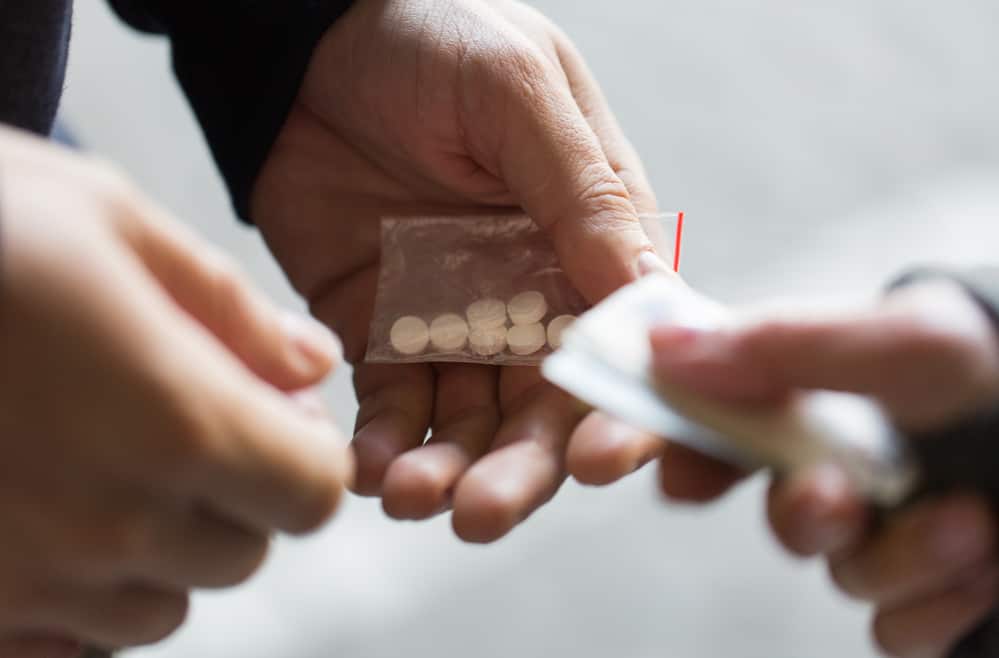Because of the wide variety of scenarios possible, the criminal defense of drug charges has become a very intricate area of the law. A drug case may include a confidential informant, surveillance, interrogations, confessions and search and seizure issues. All of these different items will intersect, making each set of facts different from every other case.
No matter what drug charges you are facing, attorney Brett Podolsky is ready to help you. Contact his office today and begin receiving the best defense possible.
Drug charges may include any of the following:

Are you facing drug charges in the state of Texas? Allow attorney Brett Podolsky to help you navigate a complex legal system. He has a strong track record of defending his clients and getting the best results possible.
There are many different types of narcotics charges but one of the most common charges is possession of a controlled substance. To be convicted of drug possession a person must have actual knowledge that a drug is present. Ultimately, that means that a person must have care, custody or control of that drug. An example of possession could consist of having the drugs in a pants pocket.
However, for the District Attorney to prove possession, the drugs do not necessarily have to be actually on someone. If the the District Attorney can prove knowledge and control of the drugs, a person may be convicted. This type of possession is called “constructive” possession. An example would be if the narcotics were found in the couch cushions where someone was sitting.
The penalties for a conviction of a drug crime will depend on the weight and type of drug that is involved. There are five different penalty groups and each group has a separate penalty. The higher the amount of narcotics that are recovered, the higher the penalty. Other items that will factor into possible punishments will include the type of crime, the presence of a minor and the criminal background of the accused.
Possible legal penalties for a drug crime include, but are not limited to:
In addition to the above penalties, it may become difficult to become employed or to find housing. Educational opportunities may decrease as well because funding may not be available for those who have been convicted of a drug crime.
Drug trafficking is the import, sale, or transport of illegal substances like marijuana and cocaine. Along with distribution, trafficking is considered more serious than possession. It usually involves larger amounts of a controlled substance.
If the drugs are transported over a state line or across a border, the penalties are increased substantially. It can occur whenever someone moves, distributes, smuggles, or manufactures illegal substances
Drug trafficking laws cover the receipt and delivery of controlled substances within the state of Texas. The state health and safety code makes it illegal to deliver specified amounts of the various penalty groups of drugs. Penalty groups are used to categorize drug types like hallucinogens, opiates, or prescription drugs. The penalties differ according to the penalty group.
Penalty Group 1, which is the most heavily regulated in Texas, includes opioids, methamphetamines, and hallucinogens. Possession of these substances is always charged as a felony.
Smaller amounts bring a sentence between 180 days to 2 years in state jail and up to $10,000 in fines. Larger amounts bring a sentence between 15 and 99 years in prison and fines up to $100,000.
Penalty Group 4, which is the least heavily regulated, includes prescription medications and the chemical compounds they contain. Possession of less than 28 grams is charged as a Class B Misdemeanor with up to 180 days in jail and a fine up to $2,000. Possession of more than 400 grams gets you a sentence between 5 and 99 years and a fine up to $50,000.
Drug trafficking can become a federal offense depending on the jurisdiction, the actions of an informant, decisions between the state and the federal employees, and the seriousness of the offense. If the crime occurs on federal lands or when the perpetrator crosses state lines.
Texas classifies controlled substances into four penalty groups. The severity of the penalty decreases from Penalty Group 1 down to Penalty Group 4. Penalties also take into account the amount of controlled substance found in possession or being manufactured, trafficked, or distributed.
Controlled substances include drugs such as:
Note: This is not a complete list of controlled substances under Texas law.
Texas makes a distinction between manufacturing controlled substances and possession of them:
Cocaine is one of the most tightly controlled and strictly penalized controlled substances in the country. Possession of as little as one gram is a felony in most jurisdictions.
Cocaine related charges include:
In Texas, possession of under a gram of cocaine is a felony. Possession of over 200 grams can bring fines as high as $10,000 and 10 to 99 years in prison. Fines are higher for distribution and manufacturing.
Methamphetamine is a synthetic drug produced in secret labs. It is then sold to drug users on the street. It is an extremely addictive drug that influences the central nervous system creating a temporary high with a debilitating crash.
Methamphetamine is also known as meth or crystal meth. Nearly all penalties in Texas for possession, manufacturing, distributing, and trafficking methamphetamine include over a year in prison. The type and amount of materials associated with methamphetamine influence the severity of the penalty.
Possession of meth paraphernalia carried a fine of up to $500; manufacture and distribution of methamphetamine can be punished by up to 99 years in prison.
Methamphetamine is included in Penalty Group 1, under which possession, manufacturing, selling, distributing, or trafficking is considered at least a state felony.
Marijuana is in its own category outside the penalty groups for controlled substances. The crimes carry a lighter sentence than other drugs, and you cannot be charged for marijuana possession, distribution, trafficking, or manufacture for hemp, CBD, or any other cannabis derivative that is not psychoactive.
Intentionally or knowingly having actual custody, care, control, or management of marijuana is considered possession.
In Texas, authorities will pursue criminal drug possession charges for marijuana, unlike other states that are relaxing their legal standards. Possession of small amounts is typically charged as a misdemeanor that can bring 180 days in county jail and/or a fine up to $2,000 for under two ounces.
Texas continues to levy harsh punishments for marijuana crimes depending on the amount in question. Trafficking, delivery, transfer, or sale of marijuana can be charged as a misdemeanor up to 7 grams, after which it is counted as a felony. Sale of any amount to a minor is also a felony with up to 20 years in jail and $20,000 in fines.
Attorney Brett Podolsky has a vast knowledge of drug related issues and is a highly effective criminal defense lawyer who serves the Houston area. Call 713-227-0087 to speak with Brett Podolsky, attorney at law, about an expert defense against drug charges.


The New, Free Ebook From the Law Office of Brett A. Podolsky
Have you or someone you know been charged with a crime? The legal system is complex and can be intimidating. With our free ebook, you can learn more about the legal process and exactly how a criminal defense attorney, like Brett Podolsky, can help defend you.
Stop wondering “What’s next?” Get your free ebook and start getting answers to your legal questions.
Houston criminal defense lawyer Brett A. Podolsky is a former prosecutor for the State of Texas. He uses his years of criminal trial experience and knowledge of the criminal laws to advise and defend people.